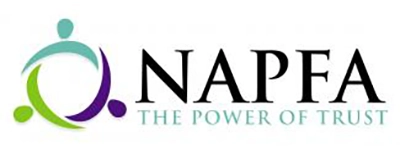Should Grandparents have 529’s?
When you save for your future, you have some risk of over-saving. There are worse problems. When flying, there are only so many ways to scrub off extra knots and altitude, but when spending there are nearly infinite ways to lighten one’s wallet.
Grandparents often like the joy of helping fund grandchild education and 529 College Savings Plans are great tool for grandparents that want to help ensure the next-next generation get through college without six-figure debt, especially debt for degrees that get five-figure jobs. But are 529’s the best tool for the job?
529 College Savings Plan 101
As a refresher, a 529 plan is a type of tax-advantaged college savings account. The IRS calls them Qualified Tuition Plans (QTPs). The number 529 comes from the section of the IRS code that spells out the rules.
The main idea of a 529 account is this: invest after-tax dollars today, compound them tax-free until education bills start arriving, then spend the compounded dollars tax-free on most college costs. They’re like a Roth IRA for college.
Other good-to-know 529 account features include:
- Plans are offered by states, some states offer more than one plan
- Some states offer a tax deduction for contributions, but can claw back the deduction under certain circumstances
- Up to $10K per year per child (not per account) can be used for K-12 private school tuition
- Funds can be used for tuition, books, tech requirements, room & board, and required fees
- Funds can’t be used for travel (which is often a chunky line item during the college years)
- Funds not used for qualified education purpose are subject to income tax on the earnings plus 10%
- The beneficiary can be changed to other relatives, including yet-to-be born relatives
- The account owner can be changed prior to the owner’s death (in most plans)
- Some accounts are sold by advisors and are often more expensive
- Some plans aren’t an investment account, but actually a prepaid tuition plan
- Accounts invest in mutual fund-like investments, typically tracking indexes or automated to create a risk-appropriate profile for a specific enrollment year
- A beneficiary can have many 529 plans
- The contribution limits for 529 plans are very high and generally indexed to inflation
- Leftover 529 funds can transfer to the beneficiary’s Roth IRA (subject to limitations)
- 529 plans help families out-pace inflation when saving for college while getting a tax tailwind along the way.
Other College Saving Options
529 plans aren’t always the best option. Many families use other account types to save for some or all of the future education tab.
Taxable Brokerage Account (e.g., stocks, bonds, mutual funds, ETFs). A taxable account creates flexibility at the (potential) cost of some annual and sale-time tax drag. The money doesn’t have to be used for educational purposes, so if Junior goes to the Academy, you don’t have any handcuffs on use of the money.
Coverdell Education Savings Account. A Coverdell account gets the same tax treatment as a 529, but it has many more limitations. Chief among them are: $2K per year per beneficiary contribution limit; income-based limits for making contributions; and the plan must be emptied by the beneficiary’s 30th birthday. The benefit of a Coverdell is that the money can be invested in basically anything that fits in a typical brokerage account, e.g., stocks, bonds, ETFs, mutual funds. The investment options are more limited in 529 accounts.
UTMA/UGMA. A Uniform Transfer to Minors/Gift to Minors Act account is a tax-advantaged, taxable brokerage account that is held in the name of a custodian (e.g., parent/grandparent) until the child reaches the age of majority, typically 18 or 21. The first $1,250 of income in the account is tax-free. The next $1,250 is taxed at the child’s rate (often 0%). After that, income is taxed at the parent’s rate (e.g., 24% for ordinary dividends and 15% for long-term capital gains).
Savings Bonds/CDs/other Fixed Income securities. The main problem with Savings Bonds and other fixed income tools is that they generally don’t outpace inflation, let alone education inflation, which is usually higher than inflation in other areas of the economy.
Grandparents and 529 Accounts
Circling back to Grandparents and 529 accounts, let’s examine why this is even an issue. Grandparents often have more savable income since their own retirement funding could be on autopilot, their own kids are grown and flown, and they generally know how much excess income/wealth they can give away.
- Grandparents may derive great satisfaction from giving while living. Seeing kids not stressing about college saving simultaneous with knowing that grandkids won’t be saddled with (as much) student loan debt can put smiles on grandparent faces.
- Grandparents that have different investing philosophies than their children might prefer to control a 529 account to avoid seeing their kids misuse or mis-invest the money.
- Grandparents might live in a state that offers a tax deduction whereas their kids might live in a state without an income tax.
- Grandparents might like the idea of surprising kids/grandkids down the road with a stockpile of cash for college.
Whatever the reason(s), it’s very common for grandparents to open and fund 529 accounts for grandkids, sometimes without even telling their kids and grandkids. But there can be downsides to grandparent-owned 529 accounts.
While we’re still waiting for the new FAFSA (Free Application for Federal Student Aid) process to roll out this year, until 2023 distributions from grandparent-owned 529 accounts were treated as student income and weighed much more against the financial aid formula. It’s expected however, that going forward distributions from grandparent accounts won’t be visible to the FAFSA process.
Financial transactions are often about as fun as a trip to (insert loathed medical professional here). Adding more people to the activity probably won’t count as quality family time if it sounds like this:
(Mom) “Hi Dad, remember how you said you had some college money set aside for Robin Jr.?”
(Grandpa) “Yes.”
(Mom) “Um, yeah, well, we’re trying to determine what we can afford for his schooling.”
(Grandpa) “Is he still thinking about medicine? I’d like to see this money used for that.”
(Mom) “Dad, is the money available for college or not?”
(Grandpa) “He hasn’t really been achieving his potential. No one wants to waste money.”
(Mom) “Um, yeah, the cat is on fire. I have to go.”
Another version might be:
(Mom) “Dad, can you distribute another $6,900 to our checking account from the 529 like last year?”
(Grandpa) “Junior hasn’t called us in months.”
(Mom) “Dad, he barely calls us. He’s really busy but doing great in school.”
(Grandpa) “Have him give us a call this weekend?”
(Mom) “Dad, the tuition bill is due Friday.”
(Grandpa) “I’m sure the school will take the money next week too.”
(Mom) [grinds layer off teeth]
Money is usually a tortured topic in families. It’s why Dave Ramsey gets universal acknowledgement for his jokes and quips such as: “Our parents didn’t talk about sex or money, so we assume they didn’t have any… but we’re here so obviously they had some of both,” and “Once someone has powdered your butt as a baby, they generally don’t want your opinion about their money.”
Families have scripts and when it comes to money, they’re often relationally problematic. Few of us like to be hyper-transparent when it comes to our financial resources and plans. Money feels like it comes with judgement, expectations, embarrassment, pride, and regret.
Perhaps it would be good to just say a few things that need to be said:
- No one makes perfect money choices.
- People who have money have the right to choose how to gift it.
- Adult kids probably experience a mix of shame, fear, anxiety, embarrassment, irritation, and about 58 other negative emotions if they must ask their parents for money—even money that’s been previously promised.
- Adult kids with kids in college are probably trying to do their best at parenting their (young adult) kids.
- Unsolicited opinions from relatives rarely enhance relationships.
- Giving with strings is closer to coercion than giving.
If grandparent-owned 529 and other college funds are a relationship minefield, what’s the path through to emerge unscathed?
Grandparent 529 Tactics
For grandparents considering starting 529 plans for grandkids, the foundation is a well-communicated plan. Options include:
- Tell the adult children what you’re doing and how you plan to spread the money out.
- Layout any redlines early. If grandparents won’t fund a certain degree or school, that’s potentially bad news that will age poorly.
- Communicate intent early. If adult children don’t know about grandparent college funding plans, they may be hamstrung in their own financial planning. Likewise, if grandparents withhold “promised” college funds, the adult children could be decades behind in a college funding plan.
- Chair-fly the distribution phase. When it’s time to pay for college expense with grandparent 529 money, there are a few options:
- Transfer the account ownership to the adult children. This is generally the best option so that no relationships fray over differences of opinion on how the money will be used. If the grandparents intend the money as a gift, let it be so.
- Preplan to send money directly to the institution. If grandparents want to be in the mix for each distribution, sending funds directly from the 529 plan to the college can at least short circuit any questions about the flow of the money after it leaves the 529.
- Give with a joyful heart. If grandparents save in a 529 account, the goal should be joyful giving. Being proactive, “Hey hon, just let us know how much Junior needs for next semester and when you want the money and it’s done! We’re so proud of how you’ve set him up for college success!” can keep grandparents in control of the money without making distribution season into a Festivus-style airing of grievances.
- Communicate plan changes early. If grandparents choose to divert or hold the 529 money, early notification gives families time to make alternate plans.
- Communicate intent often. At the risk of a blinding flash of the obvious—college is expensive. If grandparents plan to help, restating intent and resources periodically can help families plan appropriately.
- Discuss the underlying 529 investments with the adult children. Investing is opinion and taxes are fact. That said, if college inflation averages about 5%, it’s important to invest in a manner that outpaces inflation until getting close to the distribution phase (notionally about 5 years from each year of school). If grandparents invest conservatively, the college nest egg could be more hummingbird than ostrich. This is certainly the account owner’s prerogative, but it doesn’t affect the grandparents nearly as much as the adult children or college-age grandchildren. Some consensus or at least transparency is reasonable to consider.
No one ever said giving was easy! Everyone will benefit if grandparents are intentional and transparent about their college funding plans.
Adult Child Tactics
The discussion of grandparent owned 529s is like 3-role ACM—everyone thinks they know what the roles are, but not everyone is great at executing them. Adult children are caught in the middle—they’re the supporting fighter. They need some tactics to help them support their college-age kiddos without winding up defensive against their own parents.
The following are some ice-breakers that Adult Children might consider to get their parents engaged in productive planning for grandparent owned 529s.
- “Mom and Dad, can we talk about the college money you’re saving for Junior? Our financial planner is helping us plan for college funding and would like to factor in the funds you might be contributing. Would you be willing to share an account statement with us each year?”
- “Mom and Dad…. for Junior? We’re setting aside funds in our own 529 plans for the kids. Would you be open to comparing how you’re investing so we can integrate our risk planning with yours?”
- “Mom and Dad… for Junior? Our financial planner mentioned the potential of transferring unused 529 dollars to a Roth IRA. Have you heard about that new tax law change? It would probably be good for us to talk about the combined resources that we’re all lining up, so we don’t inadvertently over-save for college between your savings and ours.”
- “Mom and Dad… for Junior? We’re pretty concerned about market volatility. Our financial planner advises that money needed within 5 years should generally be in the lowest risk vehicles. Could we review the risk profile for your 529 account(s) to see if it might be time to worry more about return OF principal than return ON principal?
You get the picture. There are very legitimate reasons why adult children need to know their parents’ plans vis-à-vis college funds. Sometimes, disrupting the family script or bringing in the throw weight of a professional financial planner can help move a family past the more torturous money conversations.
Cleared to Rejoin
529 plans are a great way to fund college and offer grandparents the chance to earn sizeable, compounded returns over decades of saving. But money friction can mangle family relationships. Grandparents should be intentional, communicative, and transparent about their plans. Adult children should honor their parents’ generosity and intent, but advocate for the practicalities of the distribution phase where fewer voices in the room are probably better.
If you needed some social lubricant for your Thanksgiving dinner conversations… maybe pick another topic. But don’t wait too long to have this talk. College is coming…
Fight’s On!
Winged Wealth Management and Financial Planning LLC (WWMFP) is a registered investment advisor offering advisory services in the State of Florida and in other jurisdictions where exempted. Registration does not imply a certain level of skill or training.
This communication is for informational purposes only and is not intended as tax, accounting or legal advice, as an offer or solicitation of an offer to buy or sell, or as an endorsement of any company, security, fund, or other securities or non-securities offering. This communication should not be relied upon as the sole factor in an investment making decision.
Past performance is no indication of future results. Investment in securities involves significant risk and has the potential for partial or complete loss of funds invested. It should not be assumed that any recommendations made will be profitable or equal the performance noted in this publication.
The information herein is provided “AS IS” and without warranties of any kind either express or implied. To the fullest extent permissible pursuant to applicable laws, Winged Wealth Management and Financial Planning (referred to as “WWMFP”) disclaims all warranties, express or implied, including, but not limited to, implied warranties of merchantability, non-infringement, and suitability for a particular purpose.
All opinions and estimates constitute WWMFP’s judgement as of the date of this communication and are subject to change without notice. WWMFP does not warrant that the information will be free from error. The information should not be relied upon for purposes of transacting securities or other investments. Your use of the information is at your sole risk. Under no circumstances shall WWMFP be liable for any direct, indirect, special or consequential damages that result from the use of, or the inability to use, the information provided herein, even if WWMFP or a WWMFP authorized representative has been advised of the possibility of such damages. Information contained herein should not be considered a solicitation to buy, an offer to sell, or a recommendation of any security in any jurisdiction where such offer, solicitation, or recommendation would be unlawful or unauthorized.






